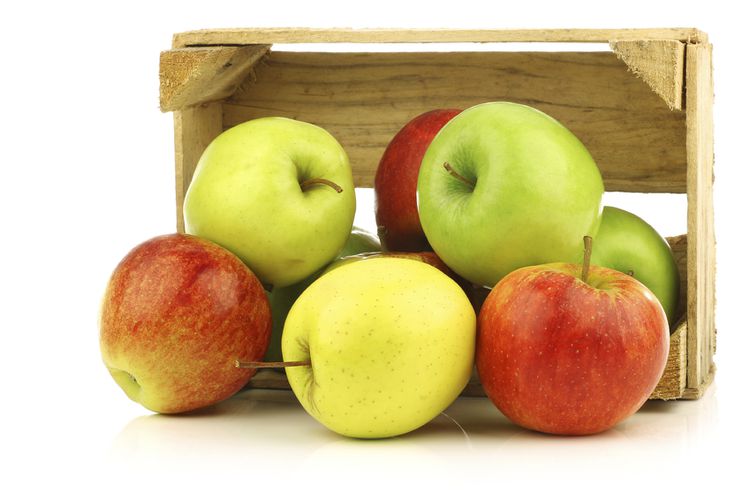Managing cholesterol levels is critical for maintaining heart health and reducing the risk of cardiovascular disease (CVD). Fortunately, several common foods have been shown to have significant cholesterol-lowering effects. In this post, we’ll dive into the science behind five nutrient-rich foods that can help lower cholesterol: nuts, beans, oats, apples, and flaxseed.
1. Nuts: A Heart-Healthy Snack
Regular nut consumption has been consistently linked with reduced cholesterol levels and improved heart health. Studies have shown that eating nuts as part of a balanced diet not only lowers overall cholesterol levels but also decreases the risk of type 2 diabetes, metabolic syndrome, and CVD.
In fact, a study involving a Mediterranean diet supplemented with nuts showed a 28% reduction in cardiovascular disease risk. This cholesterol-lowering effect is due to nuts’ high content of fibre, plant sterols, and healthy unsaturated fats. These nutrients work together to reduce LDL (bad) cholesterol while supporting HDL (good) cholesterol levels.
Types of Cholesterol-Lowering Nuts:
- Pistachios
- Almonds
- Cashews
- Walnuts
- Peanuts and peanut butter
Incorporating a variety of these nuts into your diet, whether as snacks or part of meals, can have substantial heart health benefits.
2. Beans: Fiber-Packed and Cholesterol-Lowering
Beans are another cholesterol-fighting powerhouse due to their high soluble fiber content. Soluble fiber binds with cholesterol in the digestive system, preventing it from entering the bloodstream. Aim for 10-15 grams of soluble fibre daily to maximize cholesterol-lowering effects.
One study found that consuming just one cup of beans daily can reduce LDL cholesterol by 8%, which translates into a 7% reduction in CVD risk. Adding beans to your meals is an easy and effective way to improve heart health.
Beans High in Soluble Fibre:
- Black beans (2.4g per cup)
- Chickpeas (1.3g per cup)
- Navy beans (2.2g per cup)
- Refried beans (2.1g per cup)
With such a wide variety of beans to choose from, you can mix them into soups, salads, and dips for a delicious and heart-healthy boost.
3. Oats: A Western Diet Staple
Oats are one of the most well-known foods for lowering cholesterol. Unfortunately, many people in Western diets are not consuming enough fibre, with a recommended goal of 25 grams per day. Oats are a particularly good source of soluble fibre, specifically a type called beta-glucan, which has been shown to lower cholesterol levels.
The cholesterol-lowering effects of oats were first documented in a 1963 study, and in 2007, Health Canada approved health claims regarding oats’ ability to reduce cholesterol and lower CVD risk. A more recent 2020 study found that consuming 3 grams of beta-glucan daily for eight weeks resulted in a 15% reduction in total cholesterol.
Oats for Cholesterol Control:
- 1 cup of dry oats contains 6.5 grams of beta-glucan.
Starting your day with a bowl of oatmeal or incorporating oats into baked goods can be a simple and effective way to keep your cholesterol levels in check.
4. Flaxseed: A Nutrient-Dense Addition
Flaxseed is rich in fibre and omega-3 fatty acids, both of which contribute to lowering cholesterol levels. Consuming 20-50 grams of flaxseed (2-5 tablespoons) per day has been shown to reduce LDL cholesterol by as much as 15%, according to one study.
How to Use Flaxseed:
- Add ground flaxseed to smoothies, yogurt, or oatmeal.
- Use it as an egg substitute in baking or as a topping for salads.
Ground flaxseed is more easily digestible than whole flaxseed, so it’s best to opt for ground flaxseed to maximize its cholesterol-lowering effects.
5. Apples: A Fibre and Polyphenol Powerhouse
Apples are not only a popular fruit but also an excellent source of fibre—particularly pectin, a type of soluble fibre—and polyphenols, both of which are known to lower cholesterol. Research shows that apple consumption is inversely associated with cardiovascular disease risk, making them a great addition to any heart-healthy diet.
A study found that eating two apples per day can reduce LDL cholesterol by 7% and total cholesterol by 13%. However, it’s important to note that the cholesterol-lowering benefits come from eating whole apples, not apple juice.
Why Apples?:
- They make up 12.5% of global fruit consumption.
- Rich in fiber and polyphenols for cardiovascular benefits.
Including apples as part of your daily diet is a simple and tasty way to boost your heart health.
Conclusion
Incorporating foods like nuts, beans, oats, apples, and flaxseed into your diet can make a significant difference in managing cholesterol levels and reducing cardiovascular risk. These nutrient-dense foods are easy to include in everyday meals and snacks, and their cholesterol-lowering properties are backed by strong scientific evidence. By focusing on these heart-healthy foods, you can take proactive steps toward better cardiovascular health and overall well-being.
.

